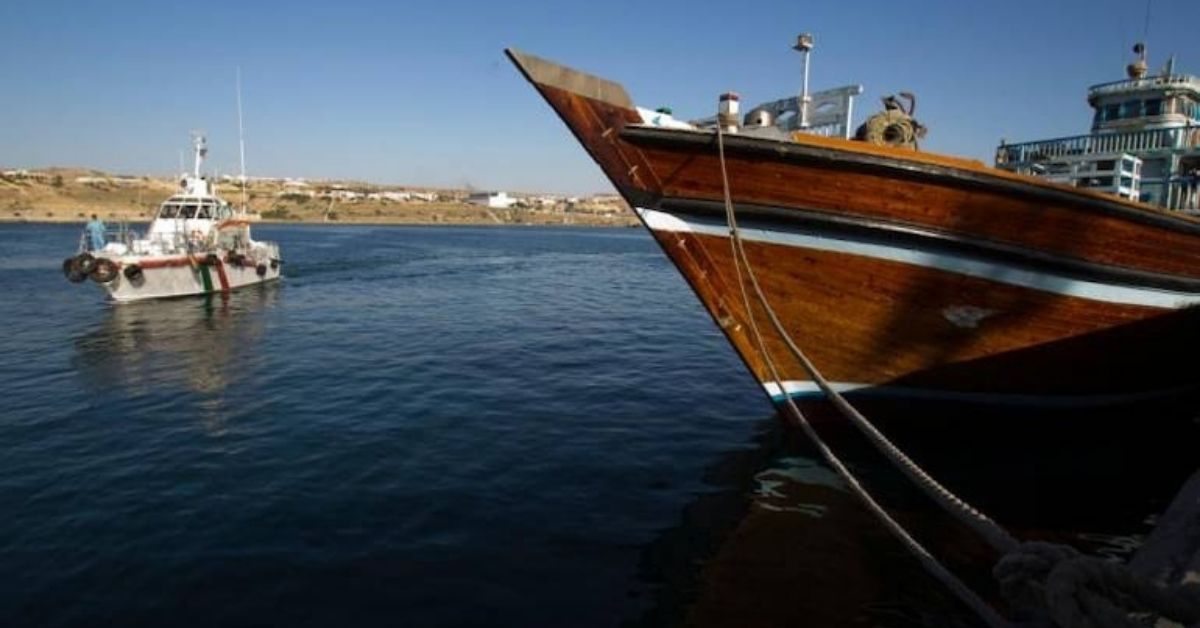Source: Mint
A high-level delegation led by the Indian minister for shipping will be visiting Iran after India’s general election. The visit, to take place in the second half of 2024, will be see the signing of the contract that will pave the way for full exploitation of this strategic port located in southeastern Iran and developed with Indian aid.
The Embassy of Iran in New Delhi confirmed the development.
“This contract is in the final stages. We are waiting for the Indian delegation to go to Iran,” a spokesperson for the Iran Embassy said in response to a query from Mint.
“This is a very good and beneficial agreement for both sides,” the spokesperson, Mahdi Esfandiari, added, while declining to provide the specifics of the contract.
Valued gateway
The Chabahar cooperation dates back to 2003, when India agreed to help Iran develop the port as well as accompanying infrastructure links during Iranian President Muhammad Khatami’s visit to India. New Delhi’s interest in Chabahar comes from the port’s value as a strategic gateway for Indian goods to reach markets in Afghanistan and Central Asia.
However, matters progressed slowly thereafter. In 2013, India committed to providing $100 million for the development of Chabahar and in 2016, India, Iran and Afghanistan signed an agreement for the development of an international trade corridor, which included Chabahar as a central transit point.
India also agreed to invest $85 million in the development of Chabahar’s Shahid Behesti terminal. However, the reimposition of western sanctions on Iran for its nuclear programme hampered India’s ability to develop the port. Thus far, India has only been able to supply six mobile harbour cranes valued at $25 million to develop the port.
India and Iran are now set to sign a long-term contract, which may be valid for 10 years, after the general elections in order to speed up the development of the port. Thus far, the two sides have signed shorter, one-year contracts.
Negotiations on the long-term contract were held up over disagreements on arbitration clauses. Mint had earlier reported that the two sides have reached an accommodation which will allow arbitration under rules framed by the UN Commission on International Trade Law (UNCITRAL).
According to persons aware of the matter, bilateral disputes have been satisfactorily resolved now, and the contract will be signed soon after the elections.
Amid disruption
The deal is also significant as it comes at a time of renewed geopolitical disruption in West Asia. In recent weeks, Iran and Israel have clashed militarily after Tehran accused Tel Aviv of launching an air strike against an Iranian diplomatic mission in Syria earlier in April.
Iran launched a barrage of missile and drone attacks on Israel in retaliation.
India has expressed concern as tensions rise in the region. It has also maintained a diplomatic dialogue with Iran on issues of concern, such as attacks on India-linked ships by Yemen’s Houthi rebels, who are believed to have links to Iran.
Apart from its strategic importance, Chabahar Port also has the potential to be a revenue generating facility. In the first half of last fiscal year 2023-24, container cargo handling at the Shahid Beheshti terminal was to the tune of 25.788 TEU (twenty foot equivalent unit) while bulk cargo handling was to the tune of 1.5 million tonne (mt).
Strengthening presence
The capacity of the port for cargo handling is currently 8 mt and India proposes to expand it to 18 mt in next phase of expansion and additional investment.
The port, which is also expected to act as a strategic gateway connecting India to the Caspian Sea, Russia and Northern Europe, and become a hub for the International North-South Transport Corridor (INSTC)—a 7,200-km transport corridor for moving goods between India, Iran, Afghanistan, Armenia, Azerbaijan, Russia, Central Asia and Europe.
India is looking to strengthen its presence in key infrastructure along the route passing through the Persian Gulf region. The Adani Group is already operating the Haifa port in Israel and more port deals are expected in the region by Indian entities that will strengthen the country’s presence on this strategic route—the main gateway for ships moving between the Indian subcontinent and Europe.
State-run India Ports Global Limited (IPGL) operates the Shahid Behestti terminal at Chabahar port. Since IPGL began operations at the terminal in 2018 (till May 2023), it has handled more than 6.56 million tonnes of bulk cargo, including shipments from Australia, Bangladesh, Brazil, Germany, Russia and the UAE, according to government data.
For 2023, India is targeting a cargo handling of 13,282 TEUs at the Shahid Beheshti terminal. As against this, cargo handling in 2022 was 3,096 TEUs. This level of cargo traffic has made the operations viable at the port.
Experts say cargo quantity may increase significantly if the port is linked to rail networks. India is involved in building the 700-km long Chabahar-Zahedan railway line. An MoU was signed between Indian Railways’ IRCON and Iranian Railways’ Construction and Development of Transportation Infrastructures Company (CDTIC) in 2016 for the construction of the Chabahar-Zahedan Railway project. India has major investment plans in Iran, largely centered around the Chabahar port as it gives India a strategic advantage over both China and Pakistan. Chabahar Port is at a distance of about 170 km from Pakistan’s Gwadar port. In Union budget for FY22, the finance ministry allocated ₹100 crore for the development of Chabahar.








